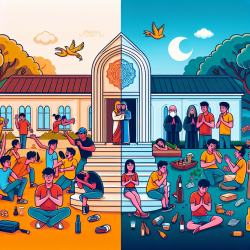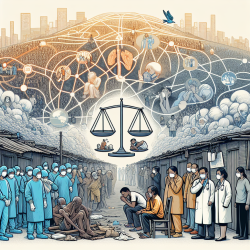Understanding the Stigma and Discrimination Faced by Khwaja Sira
The research article, “I would prefer to be dead than to live this way”: Lived experiences of stigma and discrimination against khwaja sira in Swat, Pakistan, offers critical insights into the multifaceted stigma experienced by the khwaja sira community. This community, identified as third gender in Pakistan, faces profound challenges across various social contexts, including familial, educational, and healthcare settings. The study highlights three dimensions of stigma: internalized, perceived, and enacted, which collectively contribute to the marginalization of khwaja sira.
Key Findings and Implications for Practitioners
The study's findings are pivotal for practitioners aiming to enhance their understanding and support for gender-nonconforming individuals. Here are some actionable insights:
- Internalized Stigma: Practitioners should be aware of the internalized feelings of shame and embarrassment that khwaja sira experience. Therapy and counseling sessions should focus on building self-esteem and fostering a positive self-identity.
- Perceived Stigma: This involves societal perceptions that khwaja sira are unemployable or only fit for certain stigmatized roles. Practitioners can advocate for inclusive employment practices and work with employers to create supportive work environments.
- Enacted Stigma: The exclusion from families, educational institutions, and healthcare settings requires a multifaceted approach. Practitioners should work towards creating inclusive policies and practices within these settings, ensuring that khwaja sira have equal access to resources and support.
Encouraging Further Research and Practice Engagement
While the study provides a comprehensive overview of the stigma faced by khwaja sira, it also highlights the need for further research. Practitioners are encouraged to delve deeper into understanding the resilience and coping mechanisms of khwaja sira. Engaging with community-based organizations and participating in collaborative research can provide valuable insights and foster a more inclusive society.
Conclusion
Practitioners play a crucial role in addressing the systemic issues faced by khwaja sira. By implementing the insights from this research, they can contribute to reducing stigma and discrimination, ultimately improving the quality of life for khwaja sira. For a more detailed understanding, practitioners are encouraged to read the original research paper.
To read the original research paper, please follow this link: “I would prefer to be dead than to live this way”: Lived experiences of stigma and discrimination against khwaja sira in Swat, Pakistan.










